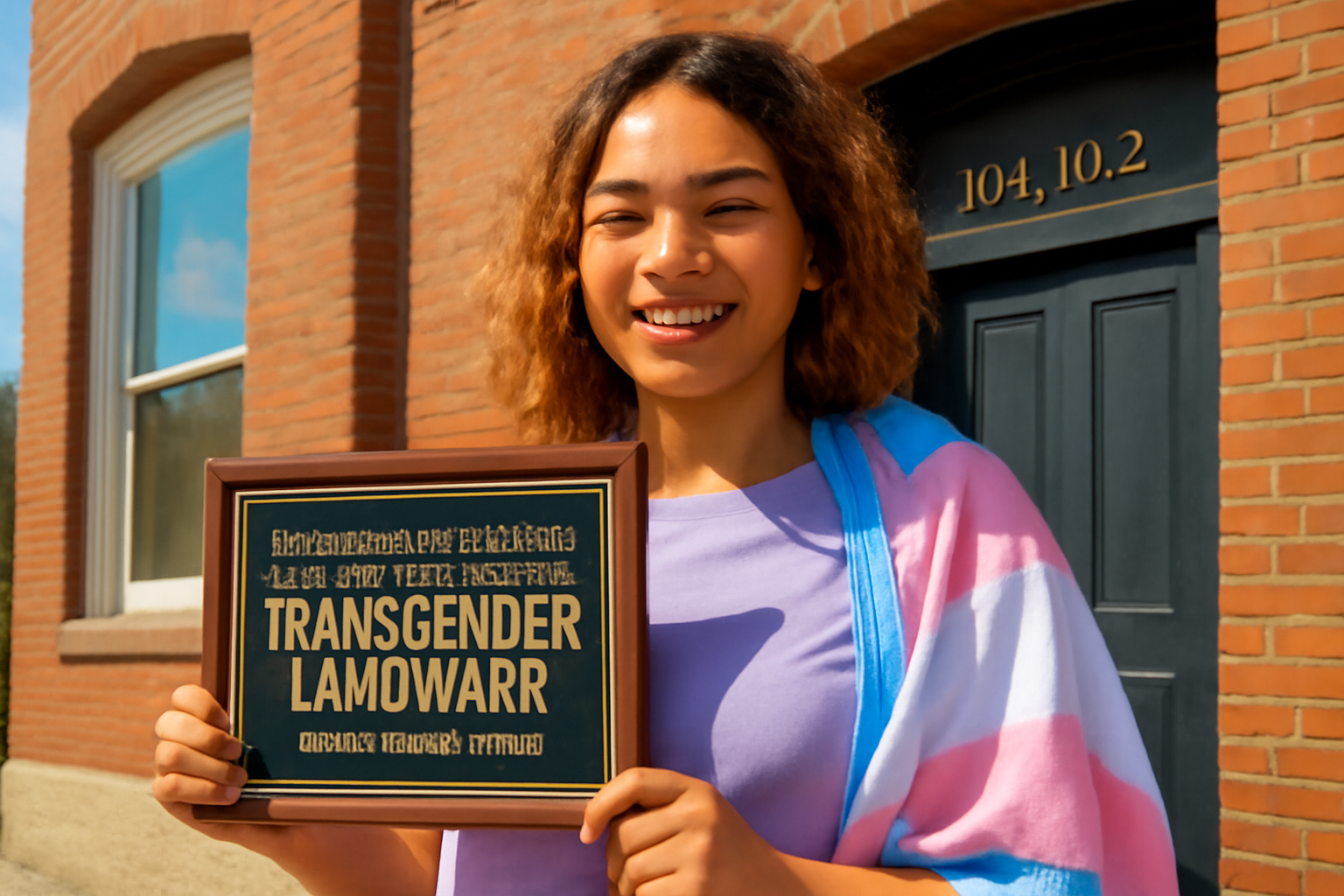
Transgender Landmark Recognized on National Register During Times of Adversity
A historic address in San Francisco, once pivotal in the early transgender rights movement, has been officially recognized for its significance by being listed on the National Register of Historic Places. The site, located at 101-102 Taylor St. in the Tenderloin neighborhood, marks a significant contribution to LGBTQ+ history in the United States.
On January 27, the National Park Service added the site without fanfare, as first reported by The Bay Area Reporter. This location was home to Compton’s Cafeteria, a 24-hour eatery that was the scene of a significant uprising in August 1966 when transgender and queer patrons clashed with police. The riot was a reaction to ongoing police harassment and marked a seminal moment in LGBTQ+ history, preceding the Stonewall riots by three years.
Historical Significance of Compton’s Cafeteria
In the 1960s, Compton’s Cafeteria was a sanctuary for transgender and queer individuals in San Francisco. One night, a confrontation escalated when a drag queen resisted arrest by throwing a cup of coffee at an officer, igniting a broader protest against systemic discrimination. The event saw damaged property, including shattered cafe windows and a police car. It is remembered as a precursor to more organized resistance within the LGBTQ+ community.
The historical importance of the site was emphasized in 2017 when San Francisco designated the area as the nation’s first transgender historic district, subsequently named the Compton’s TLGBT District. The uprising at Compton’s was instrumental in San Diego’s decision to declare August as Transgender History Month.
Recognition Despite Political Challenges
The recognition of Compton’s Cafeteria as a historic site is a landmark achievement, particularly during a period characterized by political challenges to transgender rights. Shayne Watson, a historian and historic preservation planner, described the inclusion as a "celebration of resilience" amidst these challenges.
Historian Susan Stryker, who has extensively documented the Compton’s Cafeteria riot, highlights the site's unique recognition specifically for its contribution to transgender history. "This is a pivotal site, representing a watershed moment for transgender activism," Stryker noted.
Madison Levesque, an architectural historian, was instrumental in the site’s recognition. Their master’s thesis in public history formed the basis of the application for its inclusion on the national register. Levesque wrote, "The Compton’s Cafeteria riot is a turning point in militant resistance in the LGBTQ and particularly transgender community." This acknowledgment at the national level underscores its impact on the political and social representation of transgender and gender-variant individuals.
A Milestone in LGBTQ+ History
Despite the administrative changes and policies during the Trump presidency, which have threatened transgender recognition and rights, the acknowledgment of Compton’s Cafeteria’s historic significance is a testament to the enduring spirit and resilience of the transgender community.
Recently, actions by the National Parks Service have seemed to curtail the visibility of transgender and queer contributions, such as the removal of "T" and "Q" from the LGBTQ+ initials on the Stonewall National Monument’s website. This decision appears to align with executive orders seeking to limit federal recognition of trans identities. Nonetheless, the historic recognition of Compton’s stands as a powerful message of defiance and remembrance.
In light of these developments, the historic listing serves as a reminder of the struggles and triumphs of the transgender community. By acknowledging sites like Compton’s, history ensures that the contributions of marginalized groups are not forgotten, even amidst political adversity. The inclusion of this site on the National Register is not just about preserving a building, but about commemorating the courage and activism that it embodies.
Stay informed with issues impacting your community by subscribing to our newsletter—connect with stories that matter and celebrate the rich history and ongoing struggles for equality and recognition.
Tags: LGBTQ+ history, transgender rights, historic preservation, Compton’s Cafeteria, Tenderloin district
Related Posts
Judge Temporarily Halts Order Limiting Gender-Affirming Care for Trans Youth
In a pivotal twist, a federal judge has put a temporary halt on a controversial executive order originally put forth by former President Donald Trump. This order aimed at restricting gender-affirming healthcare access specifically targeted transgender individuals under 19. With Judge Brendan Hurson stepping in, it marks a significant moment in advocating rights and protections across America. a l [...]
LinkedIn Updates Policy: Deadnaming and Misgendering Clause Removed
The latest updates in LinkedIn's community guidelines are causing quite a stir. They've removed a clause that specifically banned deadnaming and misgendering, and this has sparked a lot from LGBTQ+ advocates and community members who are worried about how this might affect transgender and nonbinary folks. Getting a grasp on these changes Under LinkedIn's previous 'Hateful and Derogatory Content' [...]
Historic Performance by LGBTQ Fighter at UFC 318: A Night to Remember
Saturday night was a night MMA fans won't soon forget. UFC 318 brought a lineup full 0of excitement, but it was Carli Judice who truly stole our hearts. Although many eyes were on local hero Dustin Poirier's farewell fight, Judice's impressive performance and victory as an openly LGBTQ fighter took center stage, captivating fans worldwide. Carli judice steals The Show at UFC 318 The action kicke [...]